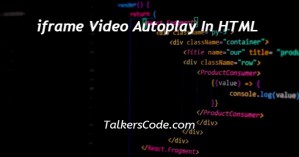JavaScript Get All URL Parameters
Last Updated : Mar 11, 2024
IN - JavaScript | Written & Updated By - Pragati

In this article we will show you the solution of JavaScript get all URL parameters, data sent via a URL from the client to the server is sent with the help of URL parameters or query string parameters.
They may include data such as search terms, recommended links, user preferences, etc. Now move to the javascript get all URL parameters.
Step By Step Guide On JavaScript Get All URL Parameters :-
The default class URL in JavaScript is used to handle all aspects of URLs, including the parameters.
Any URL string can be turned into a URL instance. Use window.location.toLocaleString() to get the URL of the webpage a user is currently viewing.
Method 1 - Using the URLSearchParams Object
An interface called URLSearchParams is used to offer ways to interact with URLs. To obtain just the URL parameters, the URL string is first divided.
On the provided URL, the split() method is applied with the "?" separator.
The thread will be divided into two pieces by it.
Only the parameters are used to choose the second portion.
It is then passed to the URLSearchParams function Object().
This object's entries() method returns an iterator containing key/value pairs in it.
The value can then be obtained by accessing the second index, and the key portion of the pair can be obtained by accessing the first index.
This can be used to retrieve all of the URL's arguments for use as needed.
Method 2 - Distinguishing and obtaining each pair of parameters
To obtain just the parameters component of the query string, it is first divided.
On the provided URL, the split() method is applied with the "?" separator.
The URL will be divided into two parts using this technique, with the second half being chosen using only the parameters.
Using the split() method once more and the separator "&," this string is divided into the parameters.
This will create an array for each parameter string.
Each key in this array is looped through, and the values are split with the separator "=".
The pairings will be divided up into an array. By using the pair's first and second indexes, it is possible to extract the pair's key component and value, respectively.
This can be used to retrieve all of the URL's arguments for use as needed.
const urlParams1 = new URL("https://example.com/?a=Welcome&b=ToTalkerscode").searchParams;
console.log(urlParams1.getAll('a'));
const urlParams2 = new URL("https://example.com/?a=Welcome&b=ToTalkerscode").searchParams;
console.log(urlParams2.getAll('b'));
- We use in our first line of code The utility methods to interact with a URL's query string are defined by the URLSearchParams interface.
- We supply some values for this parameter by utilising this.
- Next, we print some output using the console.log.
- Next, we utilise the getAll() method to obtain all the values that have been set for a certain query name.
- It returns every value connected to a specified search parameter.
- Using the getAll() method, we then use URLSearchParams once more to print the subsequent output specified in the parameter.
Conclusion :-
Thus, we have effectively learned the JavaScript notion of getting all URL Parameters.
Additionally, we observe that several parameters may have multiple values specified.
When the client requests to submit an array, this circumstance frequently occurs.
I hope this article on JavaScript get all URL parameters helps you and the steps and method mentioned above are easy to follow and implemnent.













